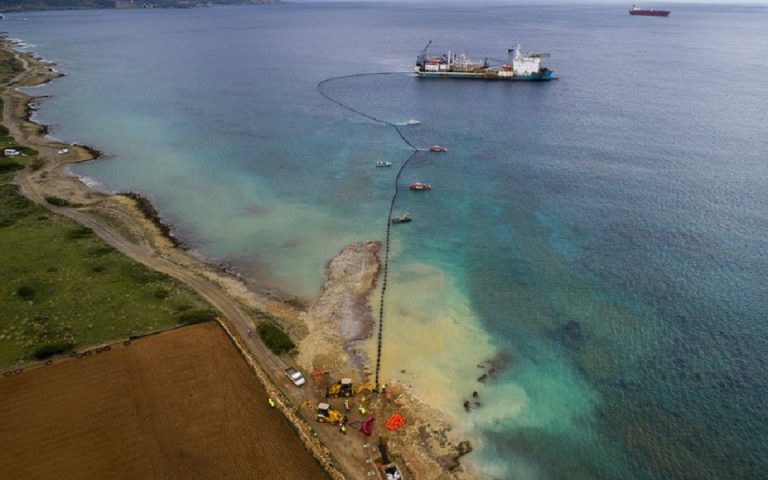
Yesterday's crucial meeting on the Greece-Cyprus cable in Nicosia was concluded without any decisions, but also without disagreement, with the saga of the major electricity interconnection still going on. Discussions have now been postponed to the next few days, when decisions are expected.
POSITIVE CLIMATE... WITHOUT DECISION
Theo Skylakakis, the Greek Minister of Environment and Energy, Giorgos Papanastasiou, Makis Kerianos, Manousos Manousakis, the CEO of IPTO, and a representative of Nexans were all present for the hour-long meeting, which also included the President of the Republic of Cyprus, Nikos Christodoulides.
The positive atmosphere of the talks was confirmed by all sides; however, there was no decision on the critical open fronts and a new series of meetings is expected in the coming days. Coming out of the meeting, Mr. Skylakakis noted that the meeting was constructive and work continues while negotiations will continue at the political level. For his part, the Cypriot Energy Minister stressed that "it was a long meeting and there was a constructive discussion between the parties; it is a work that must continue and will continue".
THE PROBLEMS
Prior to yesterday's meeting, Skylakakis had noted that, in the opinion of the Greek government, the Great Sea Interconnector project does not face any issue of economic feasibility in terms of the benefits it provides, especially to Cypriot consumers. As he explained, based on the data of the study and model of IPTO and the publicly available data on the operation of the two markets, the price differences between Greece and Cyprus are so large (€72 more expensive for the Cypriot market than the Greek market in 2024) that in all possible realistic scenarios the cable has significant gains from the point of view of Cypriot consumers.
The problem is that there is no economic viability of the project in terms of the regulatory framework (i.e., that the developer, ADMIE, which is 51% owned by the Greek taxpayer, can do the project without incurring a loss, which is not legally allowed). Economic viability has not been achieved, although it is an obligation of the regulators under the relevant European regulations, especially after the RAEK decision last July and despite the fact that the relevant contractual deadlines with the cable manufacturer have passed. It is recalled that tomorrow all the crucial issues for the interconnection are to be discussed at a summit meeting with the participation of the Greek Energy Minister, representatives of the European Commission and the company Nexans, which is building the cable in Cyprus.






